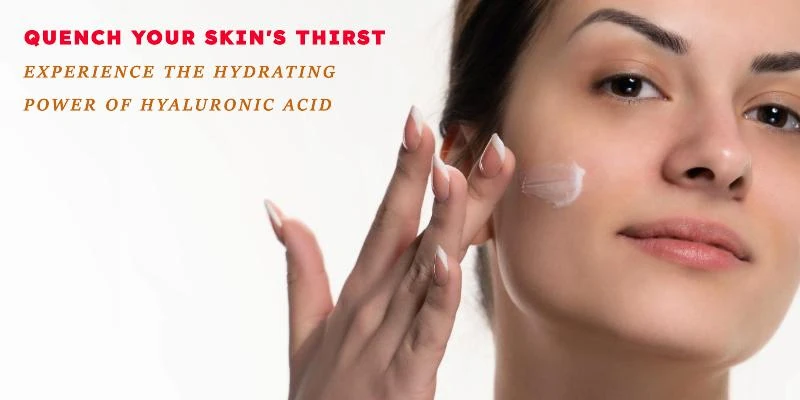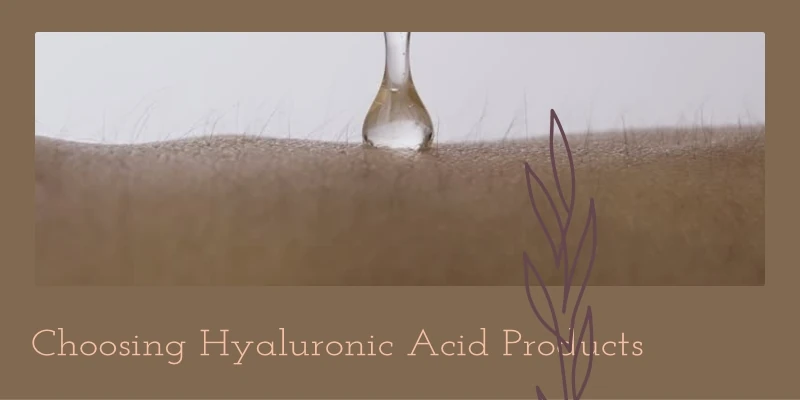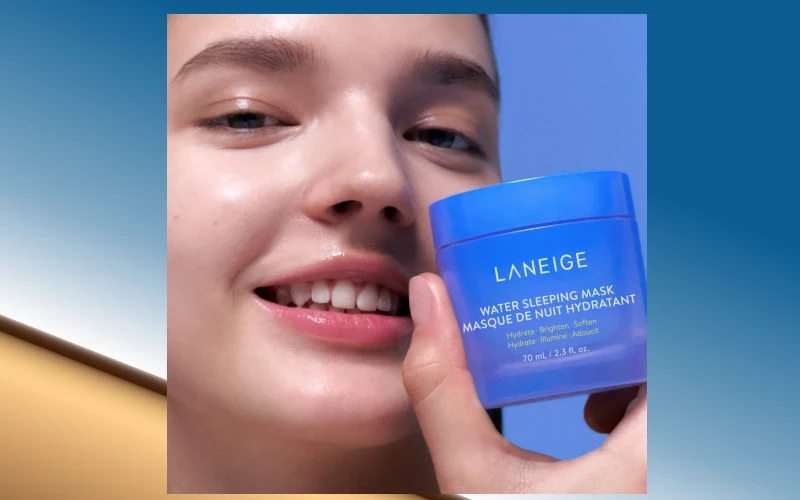Rejuvenate Your Skin: 6 Hydrating Power of Hyaluronic Acid
Hyaluronic acid (HA) has become a buzzword in the skincare industry and for a good reason. This naturally occurring substance in our skin holds the key to a hydrated, youthful, and plump complexion.

Whether you’re dealing with dry, dehydrated skin or looking to maintain a youthful appearance, hyaluronic acid offers a range of benefits that make it a must-have ingredient in your skincare routine. In this article, we’ll explore the numerous benefits of hyaluronic acid for hydration and skin plumping, understand how it works, and learn how to incorporate it effectively into your skincare regimen.
- What is Hyaluronic Acid?
- How Hyaluronic Acid Works
- The Hydrating Power of Hyaluronic Acid
- Skin Plumping Benefits of Hyaluronic Acid
- How to Incorporate Hyaluronic Acid into Your Skincare Routine
- Common Myths About Hyaluronic Acid
- Choosing the Right Hyaluronic Acid Products
- Potential Side Effects and Precautions
- Hyaluronic Acid for Specific Skin Concerns
- Conclusion: Why Hyaluronic Acid is Essential for Your Skincare Routine
What is Hyaluronic Acid?
Hyaluronic acid is a naturally occurring substance found in our skin, joints, and eyes. Its primary function is to retain water, keeping tissues well-lubricated and moist. What makes hyaluronic acid remarkable is its ability to hold up to 1,000 times its weight in water, making it an unparalleled hydrating agent in skincare.
How Hyaluronic Acid Works
Hyaluronic acid works by attracting and retaining moisture in the skin. When applied topically, it penetrates the skin’s surface and binds to water molecules, drawing moisture into the skin and holding it there. This not only hydrates the skin but also helps to improve its elasticity, smoothness, and plumpness.
Moreover, hyaluronic acid is a humectant, it primarily draws moisture from deeper layers of the skin to the surface, as well as moisture from the environment. This property is particularly beneficial in dry climates or during colder months when the air is less humid, and the skin tends to lose moisture more quickly.
The Hydrating Power of Hyaluronic Acid
- Deep Hydration: One of the most significant benefits of hyaluronic acid is its ability to provide deep hydration to the skin. As we age, our skin’s natural hyaluronic acid levels decrease, leading to dryness, fine lines, and a lack of elasticity. By incorporating hyaluronic acid into your skincare routine, you can replenish your skin’s moisture levels, resulting in a more hydrated, supple complexion.
- Improved Skin Barrier Function: The skin barrier, which protects against environmental aggressors and prevents moisture loss, can become compromised due to various factors, including age, environmental stressors, and harsh skincare products. Hyaluronic acid helps to strengthen the skin barrier by locking in moisture, preventing transepidermal water loss (TEWL), and enhancing the skin’s ability to defend against external damage.
- Increased Skin Elasticity: Hyaluronic acid contributes to improved skin elasticity by boosting hydration levels. Well-hydrated skin is more resilient and can better withstand the effects of daily stressors, leading to a firmer and more youthful appearance.
- Reduced Fine Lines and Wrinkles: One of the visible signs of dehydrated skin is the appearance of fine lines and wrinkles. By keeping the skin hydrated, hyaluronic acid helps to plump up the skin, making these lines less noticeable. Regular use of hyaluronic acid can lead to smoother, more youthful-looking skin over time.
- Soothing and Calming: Hyaluronic acid can indirectly help soothe and calm irritated skin. This makes it an excellent choice for individuals with sensitive or reactive skin types who may experience redness or inflammation.
- Non-Comedogenic: Hyaluronic acid is non-comedogenic, meaning it won’t clog pores. This makes it suitable for all skin types, including oily and acne-prone skin, as it provides hydration without causing breakouts.
Skin Plumping Benefits of Hyaluronic Acid

- Instant Plumping Effect: Hyaluronic acid provides an immediate plumping effect by drawing moisture into the skin. This can give your skin a more youthful, radiant appearance almost instantly, making it a popular choice in serums, moisturizers, and even injectable fillers.
- Long-Term Skin Plumping: Regular use of hyaluronic acid can lead to long-term skin plumping benefits. As the skin’s moisture levels are consistently replenished, the overall texture and fullness of the skin improve, resulting in a more youthful and plump appearance over time.
- Enhanced Volume: Hyaluronic acid’s ability to hold onto moisture helps to create a fuller, more voluminous appearance in areas of the skin that may have lost volume due to aging. This is particularly beneficial for those looking to restore volume to areas such as the cheeks, lips, and under-eye area.
- Improved Skin Texture: Hyaluronic acid not only plumps the skin but also smooths out rough textures, leading to a more even and refined skin surface. This makes it a great option for individuals with uneven skin texture or those looking to achieve a smoother complexion.
How to Incorporate Hyaluronic Acid into Your Skincare Routine
- Hyaluronic Acid Serums: Serums are one of the most effective ways to deliver hyaluronic acid deep into the skin. Apply a few drops of hyaluronic acid serum to clean, damp skin before moisturizing. This allows the serum to penetrate the skin and draw in moisture more effectively.
- Hyaluronic Acid Moisturizers: Many moisturizers contain hyaluronic acid as a key ingredient. These moisturizers help to lock in the hydration provided by your serum, ensuring that your skin remains hydrated throughout the day.
- Hyaluronic Acid Masks: Hydrating masks infused with hyaluronic acid can provide an extra boost of moisture to the skin. Use a hyaluronic acid mask once or twice a week for a more intense hydrating and plumping effect.
- Layering with Other Products: Hyaluronic acid is highly versatile and can be layered with other skincare products. For example, you can apply it after your vitamin C serum in the morning or before your retinol at night. Just ensure that you’re applying products in the correct order, typically starting with the thinnest consistency and working towards the thickest.
- Injectable Fillers: For those seeking more dramatic results, injectable hyaluronic acid fillers can be used to restore volume and plumpness to specific areas of the face, such as the cheeks, lips, and nasolabial folds. These treatments are typically performed by a dermatologist or licensed professional.
Common Myths About Hyaluronic Acid
- Myth: Hyaluronic Acid is Only for Dry Skin
Fact: While hyaluronic acid is excellent for dry skin, it’s beneficial for all skin types. Even oily and acne-prone skin can benefit from the hydration and barrier-strengthening properties of hyaluronic acid. - Myth: Hyaluronic Acid Can Replace Moisturizer
Fact: Hyaluronic acid is a powerful hydrating agent, but it should not replace your moisturizer. It works best when used in conjunction with a good moisturizer to seal the hydration. - Myth: All Hyaluronic Acid Products Are the Same
Fact: Not all hyaluronic acid products are created equal. The molecular weight of hyaluronic acid in a product can affect how deeply it penetrates the skin and its overall efficacy. Look for products that contain low molecular weight hyaluronic acid for deeper penetration and more effective hydration. - Myth: Hyaluronic Acid Can Cause Breakouts
Fact: Hyaluronic acid is non-comedogenic and suitable for all skin types, including acne-prone skin. It helps to balance oil production and keep the skin hydrated without clogging pores.
Choosing the Right Hyaluronic Acid Products

When choosing hyaluronic acid products, it’s essential to consider the following factors:
- Concentration of Hyaluronic Acid: Look for products that list hyaluronic acid as one of the main ingredients. Higher concentrations of hyaluronic acid can provide more significant hydration benefits.
- Molecular Weight: As mentioned earlier, the molecular weight of hyaluronic acid matters. Products with a mix of low and high-molecular-weight hyaluronic acid are ideal for providing both surface hydration and deeper penetration.
- Complementary Ingredients: Some hyaluronic acid products are formulated with additional ingredients like vitamin C, niacinamide, or peptides for skin can enhance the overall benefits of the product. Choose products that address your specific skin concerns.
- Product Texture: Consider your skin type when choosing a product texture. For example, if you have oily skin, you might prefer a lightweight, gel-based hyaluronic acid serum, while those with dry skin might opt for a richer, cream-based moisturizer.
Potential Side Effects and Precautions
Hyaluronic acid is generally well-tolerated and suitable for most skin types. However, as with any skincare ingredient, it’s essential to be aware of potential side effects and take precautions:
- Skin Reactions: While rare, some individuals may experience irritation or an allergic reaction to hyaluronic acid. If you notice any redness, itching, or swelling after using a hyaluronic acid product, discontinue use and consult a dermatologist.
- Over-Hydration: While it may seem counterintuitive, overusing hyaluronic acid can lead to over-hydration, which can disrupt the skin barrier and lead to sensitivity or irritation. Stick to the recommended usage and adjust based on your skin’s needs.
- Pairing with Other Ingredients: While hyaluronic acid is compatible with most skincare ingredients, be cautious when layering it with other active ingredients like exfoliating acids or retinoids. Ensure that your routine is balanced to avoid irritation.
Hyaluronic Acid for Specific Skin Concerns
- Hyaluronic Acid for Dry Skin: Hyaluronic acid is a game-changer for dry skin, providing much-needed hydration and relief from tightness and flakiness. It helps to replenish the skin’s moisture barrier, leading to a smoother and more comfortable complexion.
- Hyaluronic Acid for Aging Skin: As we age, the skin’s ability to retain moisture diminishes, leading to the formation of fine lines and wrinkles. Hyaluronic acid helps to counteract these effects by plumping the skin and reducing the appearance of wrinkles.
- Hyaluronic Acid for Sensitive Skin: Sensitive skin can benefit from the soothing properties of hyaluronic acid. It helps to reduce redness, irritation, and inflammation, making it a safe choice for those with reactive skin.
- Hyaluronic Acid for Acne-Prone Skin: Hyaluronic acid’s non-comedogenic nature makes it suitable for acne-prone skin. It provides hydration without clogging pores, helping to balance oil production and prevent breakouts.
Conclusion: Why Hyaluronic Acid is Essential for Your Skincare Routine
Incorporating hyaluronic acid into your skincare routine is one of the best decisions you can make for your skin’s health and appearance. Its ability to deeply hydrate, plump, and smooth the skin makes it an essential ingredient for maintaining a youthful, radiant complexion. Whether you’re dealing with dryness, aging, or simply looking to enhance your skin’s overall texture and appearance, hyaluronic acid is a versatile and effective solution that can benefit everyone.
Trust in your purchase:
Every product featured on our site has been carefully researched and selected based on quality, customer ratings, and positive reviews to ensure you receive excellent value for your money.
Please note:
This post contains affiliate links. If you make a purchase through these links, we may earn a small commission at no additional cost to you. This helps support our site and allows us to continue bringing you valuable content. Thank you!
Thank you for your precious time spent with AestheticThrive.
Source:
- Hyaluronic Acid
https://my.clevelandclinic.org/health/articles/22915-hyaluronic-acid - What Is Hyaluronic Acid? Benefits, Uses And More
https://www.forbes.com/health/supplements/hyaluronic-acid/ - How to Use Hyaluronic Acid for the Skin: The Dos & Don’ts
https://www.cetaphil.com/us/skincare-tips/skincare_guides/hyaluronic-acid-for-skincare.html





